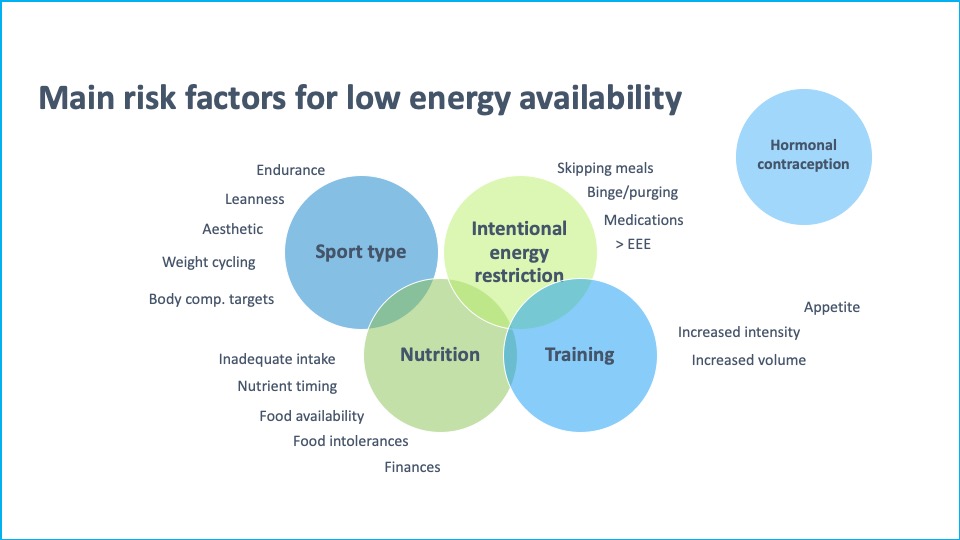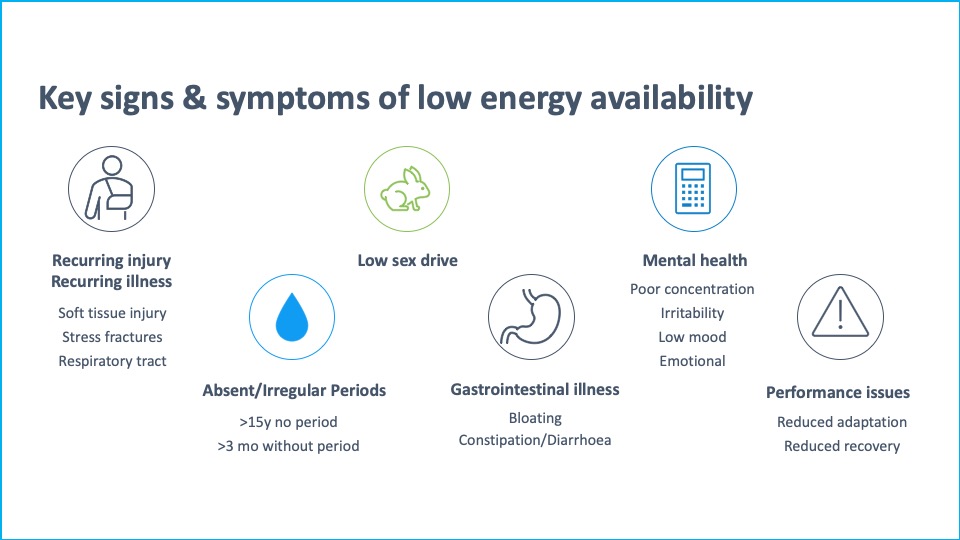Relative energy deficiency in sport (RED-S). Presented by Katie Schofield, PhD Candidate, MPhEd
The syndrome of RED-S refers to ‘impaired physiological functioning caused by relative energy deficiency and includes, but is not limited to, impairments of metabolic rate, menstrual function, bone health, immunity, protein synthesis and cardiovascular health’. RED-S effects both men and women, and elite and recreational athletes.
Low energy availability (LEA) underpins the concept of RED-S. LEA is a mismatch between an athlete’s energy intake and the energy expended in exercise, leaving inadequate energy to support the functions required by the body to maintain optimal health and performance. https://bjsm.bmj.com/content/52/11/687
LEA can lead to a host of negative physiological, psychological and performance issues including reproductive dysfunction, lower bone density, compromised immunity, increased cardiovascular risk and lower performance.
Assessing energy availability involves being able to measure exercise energy expenditure, energy intake and fat-free mass (FFM). Katie discusses the strengths and limitations of these measurements. A general rule is:
>45 kcal/kg FFM/d is optimal energy availability
30 kcal/kg FFM/d is minimum required for health
20 kcal/kg FFM/d is moderately energy deficient
10 kcal/kg FFM/d is severely energy deficient
In general, there is limited knowledge regarding RED-S among coaches, trainers and medical support staff. The LEAF-Q: Low energy availability in Females-Questionnaire (Melin et al., 2014) is a validated screening tool to assist with the early recognition of active females at risk of LEA. Katie summarises the key signs and symptoms of LEA in the slide below.


Katie Schofield is an exercise scientist and Master of Physical Education. She was a member of the NZ elite track cycling team between 2012-2016, competing at multiple World Championship events. In 2014 Katie was diagnosed with Relative Energy Deficiency in Sport (RED-S). That diagnosis was the catalyst for her current doctoral studies where she is researching the physiological and socio-psychological aspects of energy availability in elite athletes.
To register for the presentation and associated documents including the assessment quiz click here